8 Dow Jones Stocks That Could Thrive in 2018
There’s an old stock-picking approach called the Dogs of the Dow, which assumes the 10 Dow Jones Industrial Average constituents with the highest dividend yields at the end of the year are likely to outperform their peers during the next year.


Profit and prosper with the best of Kiplinger's advice on investing, taxes, retirement, personal finance and much more. Delivered daily. Enter your email in the box and click Sign Me Up.
You are now subscribed
Your newsletter sign-up was successful
Want to add more newsletters?

Delivered daily
Kiplinger Today
Profit and prosper with the best of Kiplinger's advice on investing, taxes, retirement, personal finance and much more delivered daily. Smart money moves start here.

Sent five days a week
Kiplinger A Step Ahead
Get practical help to make better financial decisions in your everyday life, from spending to savings on top deals.

Delivered daily
Kiplinger Closing Bell
Get today's biggest financial and investing headlines delivered to your inbox every day the U.S. stock market is open.

Sent twice a week
Kiplinger Adviser Intel
Financial pros across the country share best practices and fresh tactics to preserve and grow your wealth.

Delivered weekly
Kiplinger Tax Tips
Trim your federal and state tax bills with practical tax-planning and tax-cutting strategies.

Sent twice a week
Kiplinger Retirement Tips
Your twice-a-week guide to planning and enjoying a financially secure and richly rewarding retirement

Sent bimonthly.
Kiplinger Adviser Angle
Insights for advisers, wealth managers and other financial professionals.

Sent twice a week
Kiplinger Investing Weekly
Your twice-a-week roundup of promising stocks, funds, companies and industries you should consider, ones you should avoid, and why.

Sent weekly for six weeks
Kiplinger Invest for Retirement
Your step-by-step six-part series on how to invest for retirement, from devising a successful strategy to exactly which investments to choose.
There’s an old stock-picking approach called the Dogs of the Dow, which assumes the 10 Dow Jones Industrial Average constituents with the highest dividend yields at the end of the year are likely to outperform their peers during the next year. The strategy, which implies that high yields are actually a measure of value, isn’t a bad one. Few blue chips remain beaten down forever, especially when it comes to high-quality Dow stocks.
However, the Dogs of the Dow is a little too formulaic for some investors. The approach ignores the reality that – when limiting yourself to a small list of blue chips to begin with – you should be able to hand-pick future winners on merits other than a prior year’s underperformance.
With that as the backdrop, here a closer look at eight Dow stocks that could very well thrive in 2018 not because they did poorly in 2017, but just because they’re great (and generally underestimated) companies.
Data is as of Dec. 15, 2017. Dividend yields are calculated by annualizing the most recent quarterly payout and dividing by the share price. Stocks are listed in alphabetical order. Click on ticker-symbol links in each slide for current share prices and more.
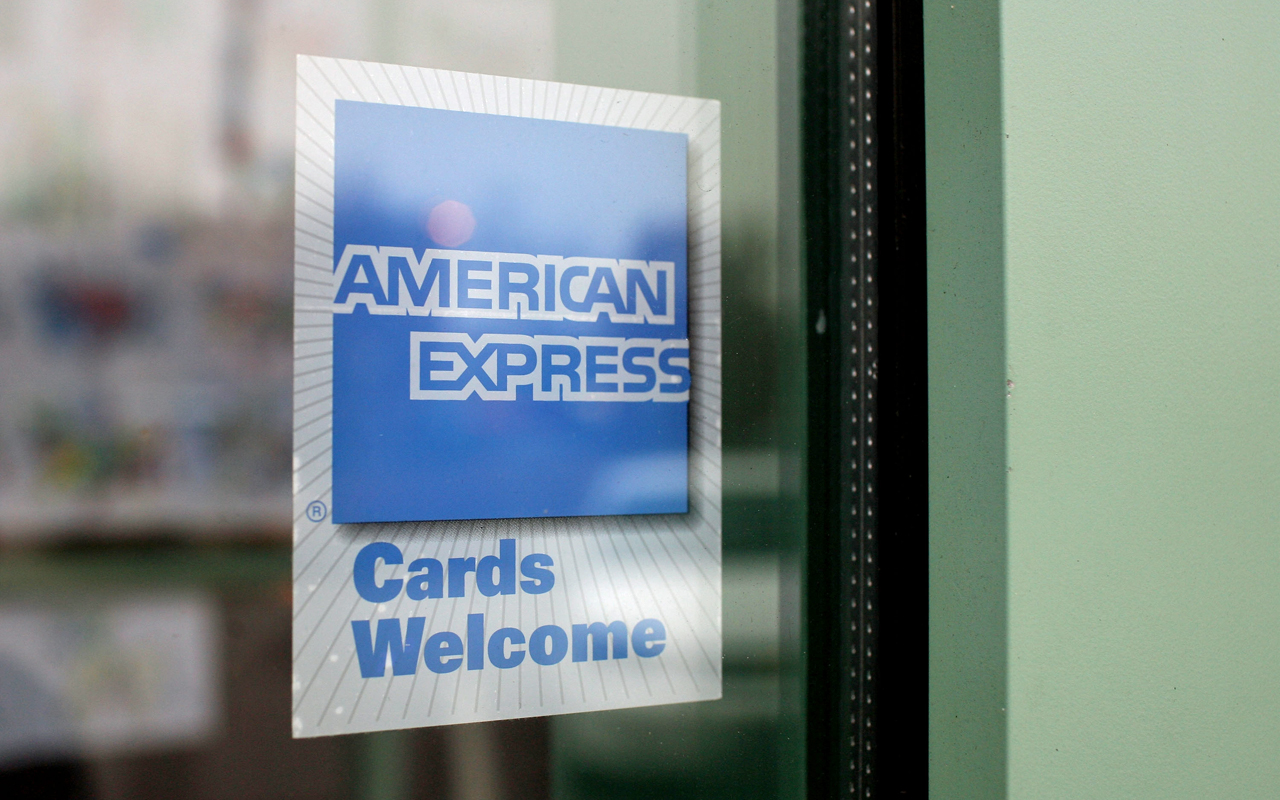
American Express
- Dividend yield: 1.4%
- Year-to-date total return: 33%
Considering the advent of Bitcoin, the increasing number of ways to use PayPal (PYPL) on mobile devices and retailers’ willingness to sever relationships with card-based payment middlemen, it would be easy to assume that a payment processing outfit like American Express (AXP, $98.52) was fighting a losing battle.
Indeed, American Express was one of the Dow Jones’ high-profile dumpees in 2015 and early 2016. Costco (COST) said sayonara to the company and tapped rival Visa (V) instead to provide the backbone for its payment infrastructure. The move clearly caught the eye of other businesses also looking to play one credit card services company off of another.
The move from Costco may have been something of a wake-up call for American Express, however, which has since maneuvered back to a more competitive, relevant posture. Take, for example, its recent decision to facilitate same-day international transactions using blockchain technology. That alone won’t jolt revenues back into hyper-growth mode, but it’s a microcosm of the company’s willingness to be aggressive in trying new things.
And for all the panic over the loss of Costco’s business, American Express managed to grow nonetheless, with analysts expecting the company to finish 2017 with low-single-digit improvement on both the top and bottom lines. Moreover, last quarter’s 9% year-over-year improvement in revenue and 25% growth in earnings per share point to progress we haven’t seen from AmEx in a long while.

Boeing
- Dividend yield: 2.3%
- Year-to-date total return: 94%
Shares of aircraft maker Boeing (BA, $293.94) went nowhere between the beginning of 2014 and the end of 2016, largely in response to tepid aircraft sales. That stagnation translated into doubts about the Dow stock as 2017 got rolling.
But as it turns out, that pessimism wasn’t merited anymore. After postponing aircraft purchases as long as they could, airlines finally were forced to start pulling the trigger in 2017 to update their aging fleets. Cases in point: In early November, Boeing signed a deal to sell $37 billion worth of aircraft to Chinese carriers, and just a few days later, Dubai-based Emirates agreed to a $15 billion aircraft purchase. The transactions are just morsels of a much bigger paradigm shift in the way the world travels – one that Boeing believes will drive demand for $5.9 trillion worth of planes over the next two decades.
BA is not a cheap stock relative to its actual or projected earnings. Its trailing price-to-earnings ratio is 27, while its P/E based on analysts’ estimates for next year’s profits is just a tad lower, at 26.5. But in this case, the rekindling story is overcoming any valuation concerns.
Fanning those bullish flames even further will be President Donald Trump’s proposed tax overhaul for individuals and corporations. Bernstein analyst Douglas Harned made a point of calling Boeing a “big winner” should the tax rules and rates change as the White House intends.
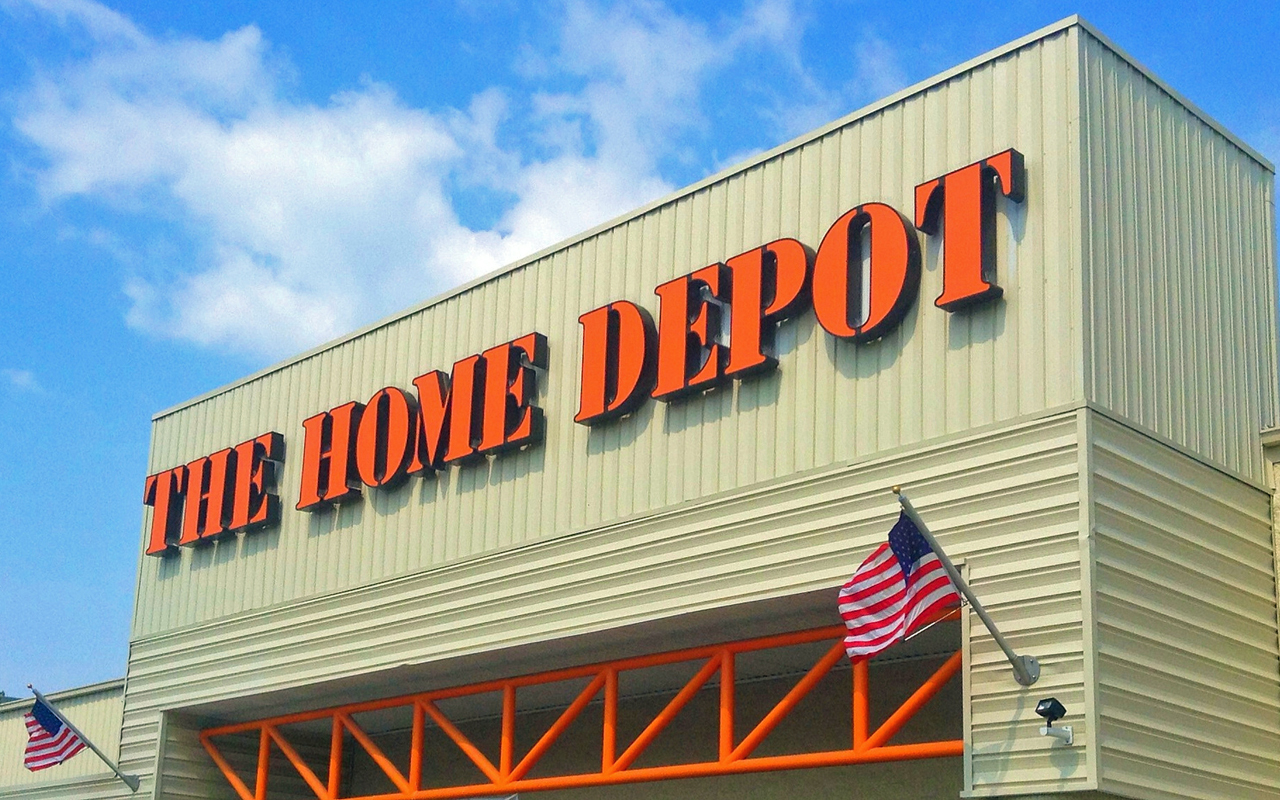
Home Depot
- Dividend yield: 2.0%
- Year-to-date total return: 39%
- Home Depot (HD, $182.58) shares have delivered nearly 40% in returns between price gains and dividends. Thus, it could be tough to envision HD advancing even further in the foreseeable future – especially with a forward P/E of more than 22.
But this is one of those Dow stocks that doesn’t balk when its valuation gets a little frothy.
Also, the housing market is turning red-hot again. While it wouldn’t be accurate to describe 2017’s construction activity as poor, it certainly wasn’t as impressive as the growth we’d seen between 2012 and 2016. The slowdown looks like it was only a temporary pause, however, sparked by the surprising election of Donald Trump in November. At first, consumers as well as analysts feared he may ultimately bring economic growth to a halt. A year removed from the election, however, it’s clear Trump is fanning the flames of growth.
“Demand for housing is increasing at a consistent pace, driven by job and economic growth, rising homeownership rates and limited housing inventory,” National Association of Home Builders Chief Economist Robert Dietz recently said. “With these economic fundamentals in place, we should see continued upward movement of the single-family housing market as we close out 2017.”
The Kiplinger housing forecast for 2018 also is calling for a 5.6% increase in the number of new-home starts, and a 9.8% improvement in new-home sales.
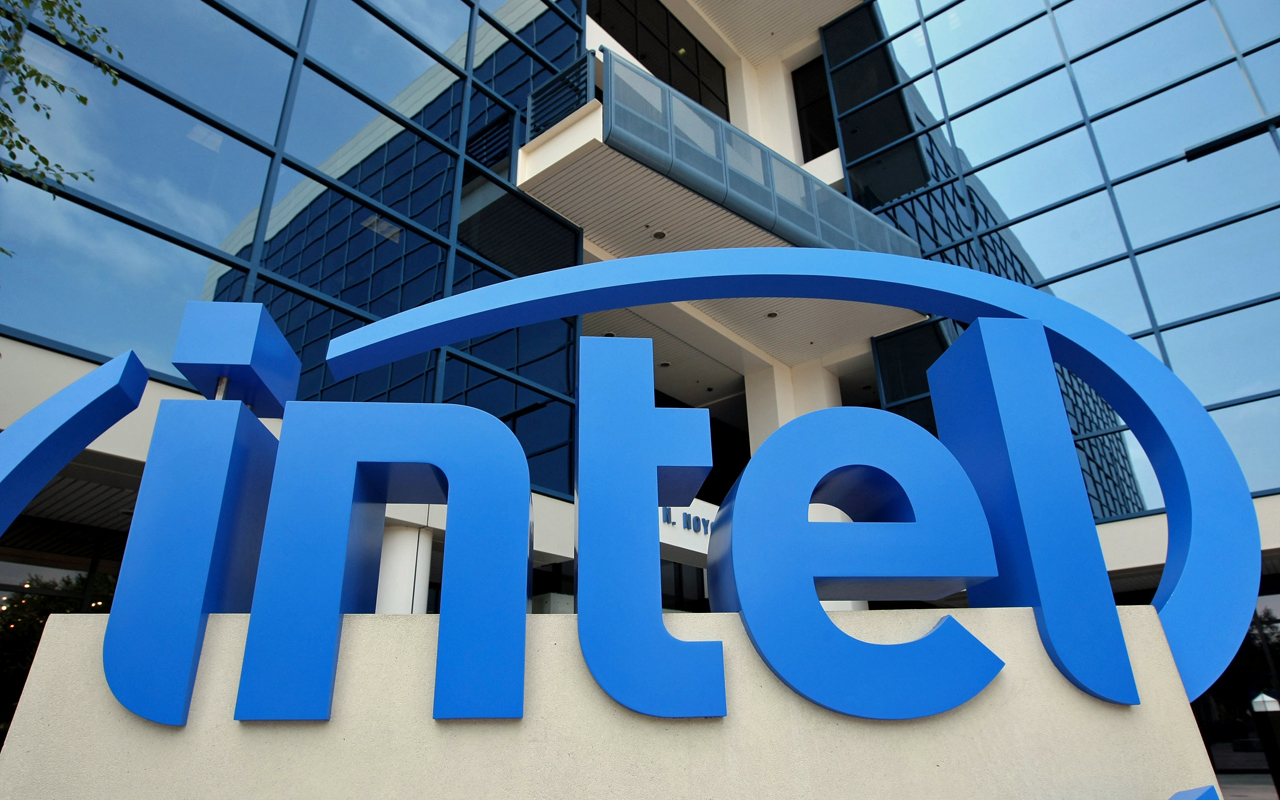
Intel
- Dividend yield: 2.5%
- Year-to-date total return: 26%
Yes, the PC industry has been and remains relatively lackluster, crimping Intel’s (INTC, $44.56) bread-and-butter computer-processor business. The company is well-positioned to thrive all the same, however, as it’s so much more than just a PC play anymore.
Case in point: While demand for personal computers may be tepid, the advent of cloud computing and the massive amounts of digital information it can create has translated into opportunities to supply and service data centers. In fact, Intel’s data center arm saw a 7% year-over-year increase in revenue and operating income last quarter, and 16% growth specifically from its cloud customers.
Intel also is wading deeper into autonomous cars. While its acquisition of Mobileye in August is one tool it can leverage to penetrate this fast-growing market, we learned a month later that Intel has been providing some of the self-driving technologies used by Alphabet’s (GOOGL) Waymo project for years now. And in November, Intel revealed it was making a push into discrete GPUs – on both the low and high ends – where it will compete with Advanced Micro Devices (AMD) and Nvidia (NVDA).
A long way of saying that Intel has many ways other than PCs to drive growth.
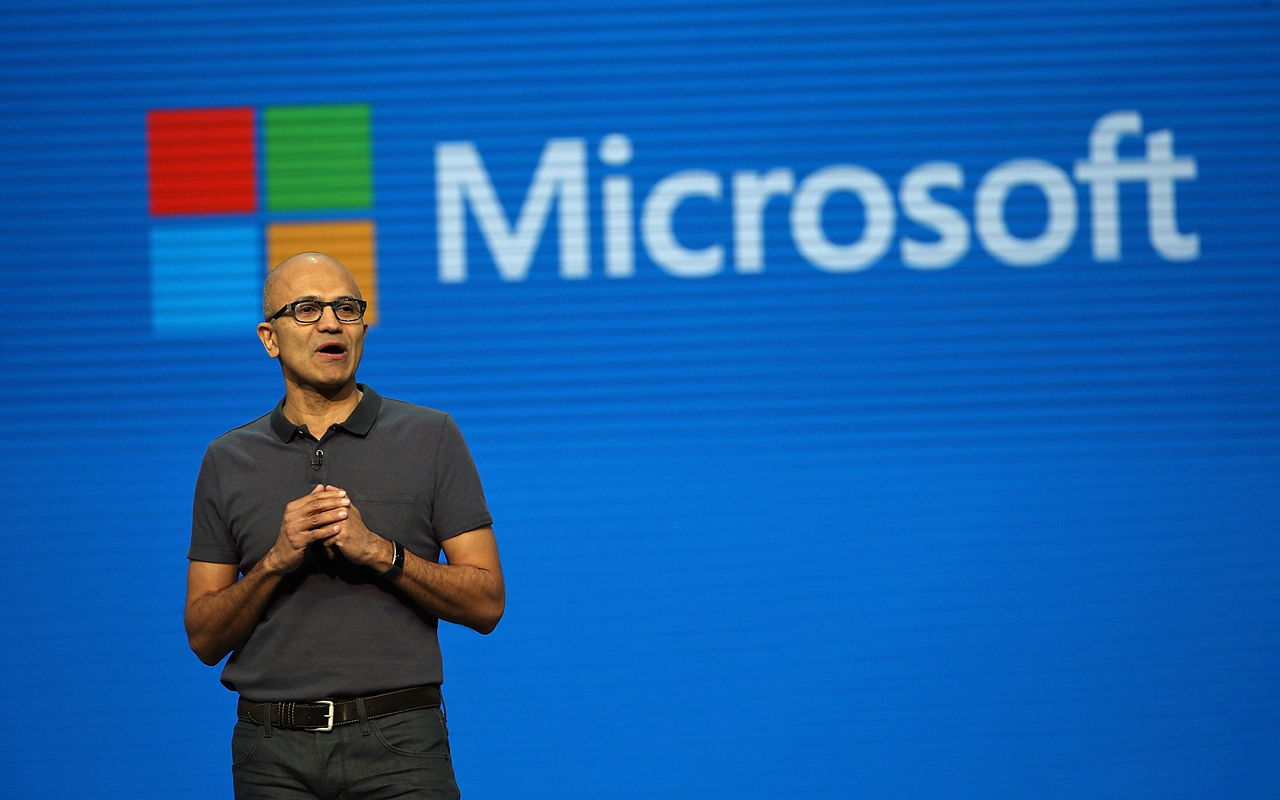
Microsoft
- Dividend yield: 2.0%
- Year-to-date total return: 43%
To say software giant Microsoft (MSFT, $86.85) has adapted over the course of the past 20 years would be a considerable understatement. It has undergone a complete paradigm shift, becoming a critical part of the cloud computing landscape. As of last quarter, the company’s annual pace of commercial cloud revenue topped $20 billion.
That’s just the beginning. “Renting” software rather than outright buying it is quickly becoming the new norm – particularly in the business world – and Microsoft is firing on all cylinders in that regard. Office 365, which is a cloud-based version of its familiar “Office” family of productivity programs, grew sales 42% year-over-year last quarter. Meanwhile, its cloud-computing platform interface called Azure experienced 90% revenue growth, outpacing that of rival Amazon.com’s (AMZN) Amazon Web Services.
AWS still enjoys more market share than Microsoft, but Microsoft is closing the gap now that it’s fully retooled for the modern era.
Simply put: The new and improved Microsoft figured out exactly what the world wants and needs, and it’s selling the daylights out of it. The best part of all for current and would-be investors is the recurring-revenue nature of all these cloud-based products. The company, and shareholders, have a pretty good idea of what to expect from one quarter to the next.
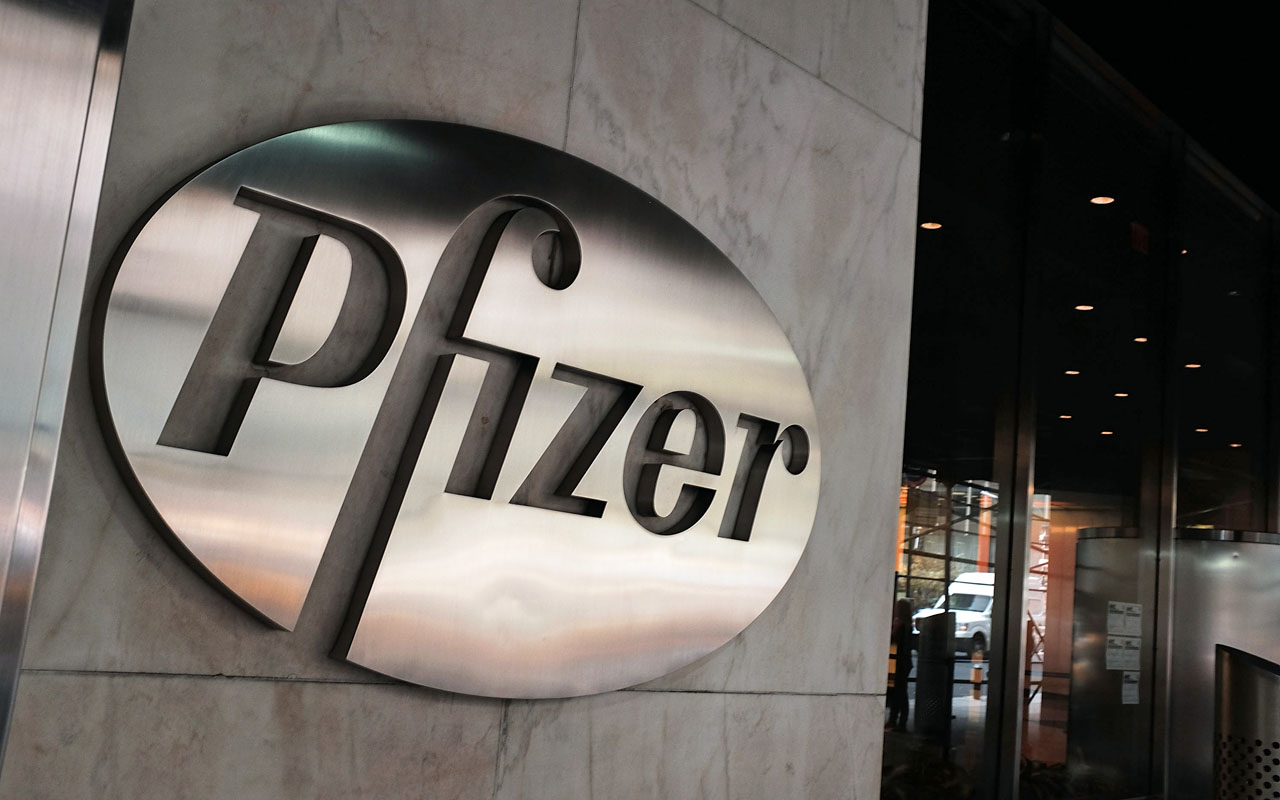
Pfizer
- Dividend yield: 3.4%
- Year-to-date total return: 19%
Following the expiration of the patent on its blockbuster cholesterol-fighting drug Lipitor in 2012, pharmaceutical company Pfizer (PFE, $37.20) floundered for a few years. It simply had nothing in its portfolio to offset the billion in revenue the therapy was driving year-in, year-out. Revenue slumped for the next three years, as did earnings. While PFE shares gained during that timeframe, they lagged the broader market’s performance.
That may be about to change. With time to work on some new things (and a little pressure from shareholders), Pfizer has pieced together a compelling drug portfolio and pipeline again. Drugs like Ibrance, Xtandi and Eliquis are not only doing well – Ibrance sales grew 60% last quarter – but new uses of those treatments are in constant testing.
But it’s not so much what Pfizer is building or buying that makes it a compelling pick for the coming year – it’s what the company is trying to let go of. Pfizer may spin off its consumer healthcare business to concentrate exclusively on the development and sale of prescription pharmaceuticals.
With that kind of focus, not to mention the $15 billion or so it would collect for such a sale, Pfizer could buy and/or develop pretty much any drug it wants to.
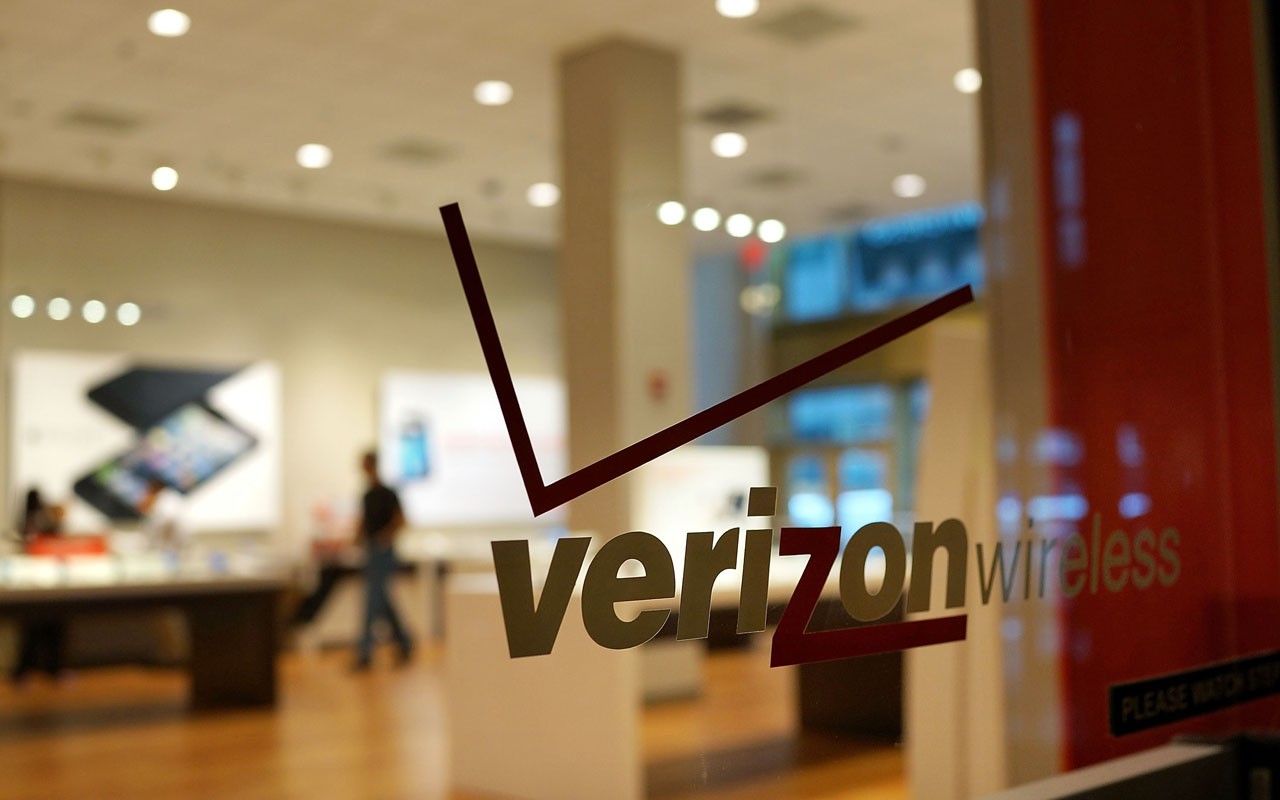
Verizon Communications
- Dividend yield: 4.5%
- Year-to-date total return: 3%
The Verizon Communications (VZ, $52.67) acquisition of internet company Yahoo didn’t go anywhere nearly as smooth as initially planned. In fact, a handful of 11th-hour revelations that Yahoo! had been hacked could have scuttled the deal before Verizon signed the check. Verizon pulled the trigger anyway, however, only to learn in October that the breaches were even worse than previously feared. As it turns out, every single Yahoo user’s data was exposed.
A growing distrust in Yahoo in addition to the extra cleanup work Verizon wasn’t planning to do costs the company – and ultimately shareholders – money. That’s a key part of why Verizon shares have performed so poorly this year, though their sluggishness was bolstered by old-fashioned weakness in the top line.
Wells Fargo analyst Jennifer Fritzsche, however, thinks all these headaches are in the past, and fully priced in. “In our view, much of the bad news is behind the stock in terms of wireless service revenue declines,” she explained in an upgraded of VZ stock in November. “We expect to hear more sooner vs. later of the company’s fiber initiative and the math behind it. We believe the plan will lay out a convincing case for both revenue growth and cost containment. Finally we believe from a PE (price/earnings) and dividend yield basis the stock’s valuation is attractive.”
We agree with Fritzsche, by the way, which is why Verizon is one of a few Dow stocks that has made our Kiplinger Dividend 15 list of top dividend-paying picks.

Walmart
- Dividend yield: 2.1%
- Year-to-date total return: 44%
Two years ago, Walmart (WMT, $97.11) looked like a lost cause. It was losing market share to Amazon, its stores were a mess, and the top and bottom lines were stagnant.
What a difference a couple of years can make. Largely under the guidance of relatively new CEO Doug McMillon, the world’s largest retailer has gotten very good at e-commerce – last quarter’s 50% year-over-year increase in online sales speaks volumes – shored up its in-store operational problems, and is starting to think of creative ways to remain competitive in the modern retailing environment. Case in point: By 2019, the company is going to add an additional 1,000 locales to pick up groceries ordered online. Consumers love convenience.
The future looks brighter for the retailer than it has in a long, long time. Better still, we’re already seeing the fruits of the company’s labor in the present. Last quarter wasn’t just a win for Walmart’s e-commerce arm – the whole company thrived, with total revenues growing 3.8%, including a 2.7% same-store sales boost in the United States.
The iconic discounter has found a winning formula again.
James Brumley did not hold a position in any of the aforementioned stocks as of this writing.
Profit and prosper with the best of Kiplinger's advice on investing, taxes, retirement, personal finance and much more. Delivered daily. Enter your email in the box and click Sign Me Up.

-
 Nasdaq Leads a Rocky Risk-On Rally: Stock Market Today
Nasdaq Leads a Rocky Risk-On Rally: Stock Market TodayAnother worrying bout of late-session weakness couldn't take down the main equity indexes on Wednesday.
-
 Quiz: Do You Know How to Avoid the "Medigap Trap?"
Quiz: Do You Know How to Avoid the "Medigap Trap?"Quiz Test your basic knowledge of the "Medigap Trap" in our quick quiz.
-
 5 Top Tax-Efficient Mutual Funds for Smarter Investing
5 Top Tax-Efficient Mutual Funds for Smarter InvestingMutual funds are many things, but "tax-friendly" usually isn't one of them. These are the exceptions.
-
 I'm a 55-Year-Old Dad. Here’s How My 28-Year-Old Daughter Showed Me That AXP Is Still a Solid Investment
I'm a 55-Year-Old Dad. Here’s How My 28-Year-Old Daughter Showed Me That AXP Is Still a Solid InvestmentAmerican Express stock is still a solid investment because management understands the value of its brand and is building a wide moat around it.
-
 Stocks Close Down as Gold, Silver Spiral: Stock Market Today
Stocks Close Down as Gold, Silver Spiral: Stock Market TodayA "long-overdue correction" temporarily halted a massive rally in gold and silver, while the Dow took a hit from negative reactions to blue-chip earnings.
-
 Nasdaq Leads Ahead of Big Tech Earnings: Stock Market Today
Nasdaq Leads Ahead of Big Tech Earnings: Stock Market TodayPresident Donald Trump is making markets move based on personal and political as well as financial and economic priorities.
-
 Stocks Climb Wall of Worry to Hit New Highs: Stock Market Today
Stocks Climb Wall of Worry to Hit New Highs: Stock Market TodayThe Trump administration's threats to Fed independence and bank profitability did little to stop the bulls on Monday.
-
 Dow Rises 497 Points on December Rate Cut: Stock Market Today
Dow Rises 497 Points on December Rate Cut: Stock Market TodayThe basic questions for market participants and policymakers remain the same after a widely expected Fed rate cut.
-
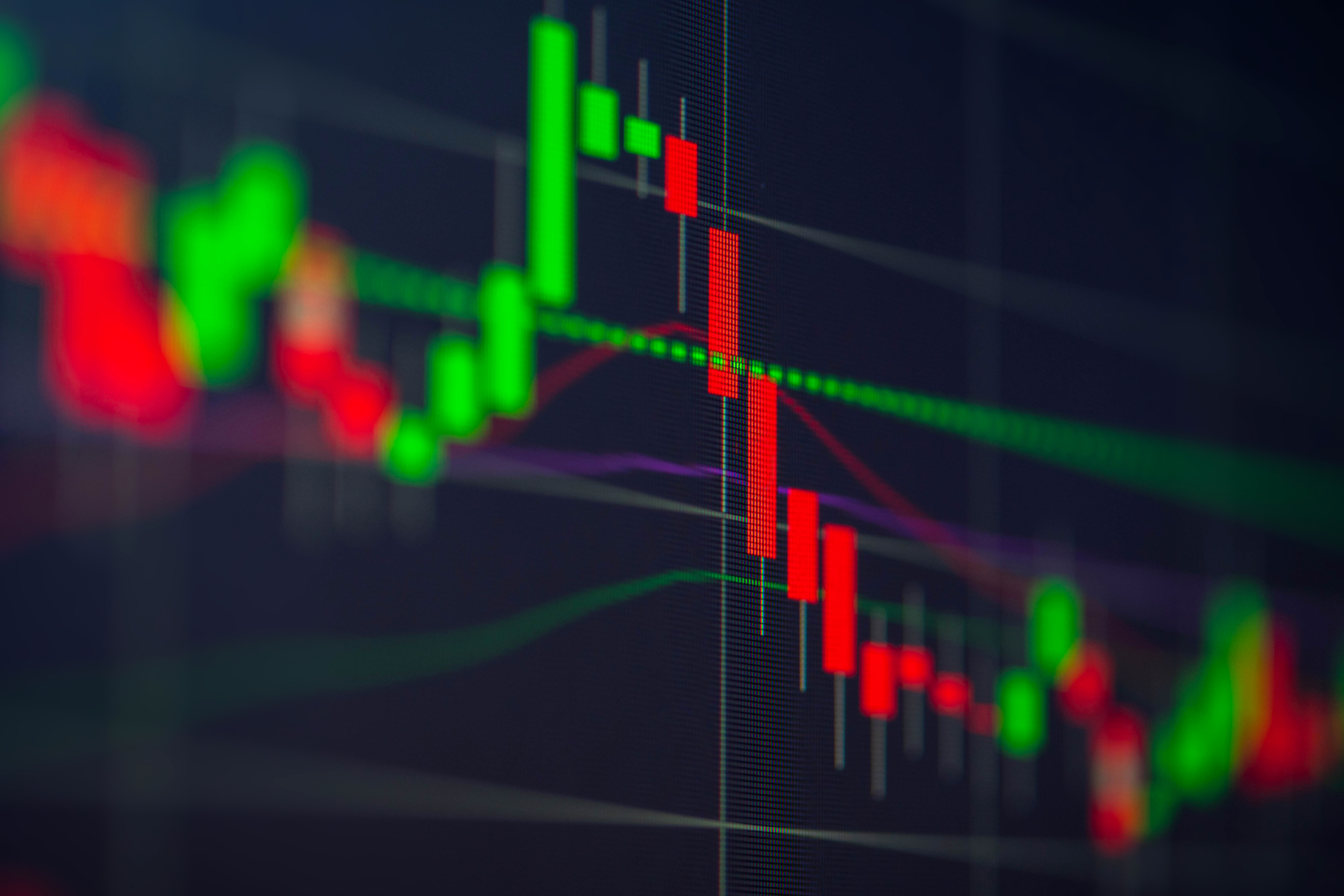 Stocks Rise to End a Volatile Week: Stock Market Today
Stocks Rise to End a Volatile Week: Stock Market TodayThe market's fear index reached and retreated from a six-month intraday peak on Friday as stocks closed the week well.
-
 Stock Market Today: Stocks Rise on Less Deadly Concerns
Stock Market Today: Stocks Rise on Less Deadly ConcernsMarkets are forward-looking mechanisms, and it's good when price action shows there's a future to look forward to.
-
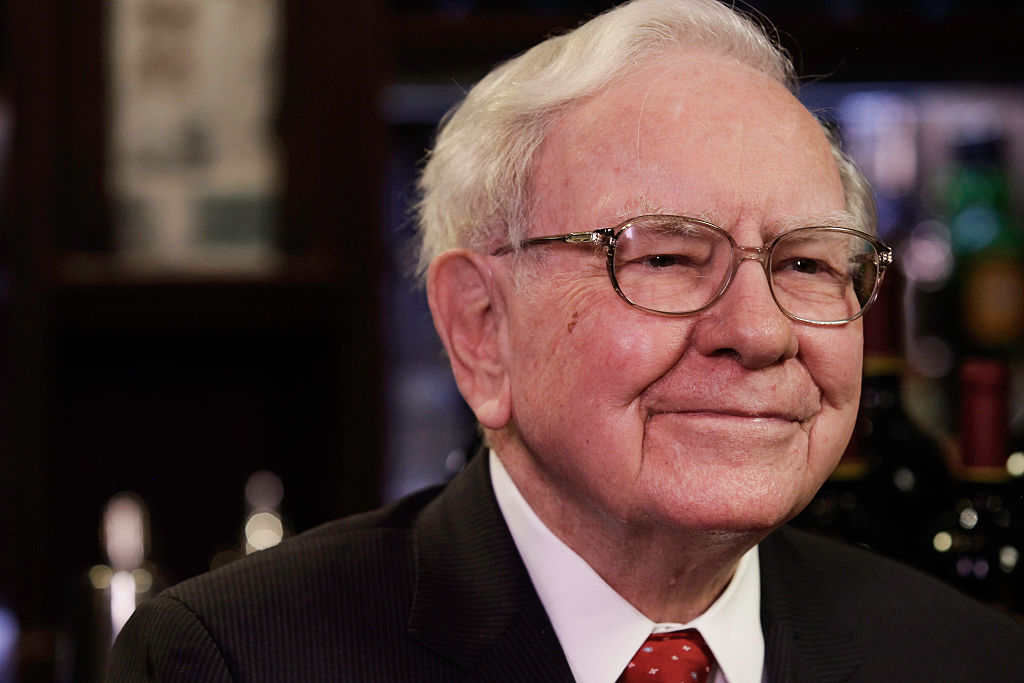 5 of Warren Buffett's Best Investments
5 of Warren Buffett's Best InvestmentsThe Oracle of Omaha generated plenty of wins throughout his illustrious career as an investor. Here are five of Warren Buffett's best investments.
